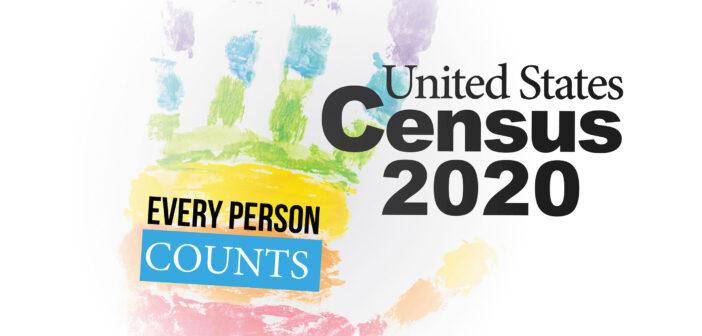by SEAN GROSSNICKLE
2020 is a pivotal year for the future of American politics. The forms we fill and ballots we cast will not only determine which candidates represent us in the White House, Congress, and state legislatures but will also shape how populations are counted, districts are drawn, and funding is allocated. The intersection of the U.S. Census, held once every 10 years, and the November elections raises the stakes of every American’s civic engagement.
CENSUS LOGISTICS
Since mid-March, households have had the opportunity to submit the 2020 Census form online, by mail, or by phone. Most American households received a mailed pamphlet that includes a unique code and instructions for completing the form online, and the Census Bureau again followed up in April with mail sent to homes that had not yet responded. In total, the questionnaire takes no more than 10 minutes to complete, and only one member per household needs to fill out the form. There is no citizenship question included in this year’s Census, and the information requested is fairly basic, pertaining to name, age, birth date, sex, and race. All information submitted to the Census Bureau is bound by Title 13 of the U.S. Code, which guarantees that all private and identifiable information will not be released to any other government agency, law enforcement, or court. This information is kept strictly confidential and is solely used to paint a statistical picture of the nation’s population.
MEETING THE DEADLINE
The coronavirus pandemic extended the 2020 Census collection deadline until October 31, yet federal appointees and Trump administration officials have sought to conclude the data collection much earlier. Depending on the outcome of ongoing litigation, the response deadline may be moved up to October 5, as indicated by the Census Bureau. The data reporting deadline could also be affected by the outcome of the current litigation, with reporting totals going to the desk of the President as early as December 31 or as late as April 30.
It is not too late to complete the Census or inform members of your community about the significance, ease, and lasting effects this decennial data collection can have. An accurate Census count is the cornerstone of America’s representative government. The 2020 Census will not factor into this year’s election cycle, but its data will be instrumental in reshaping political representation, economic decisions, and resource allotment for the next 10 years. It is more than a simple population tally. Data collected in the Census will become a basis for a wide range of government and private industry research, affecting business decisions as well state-level districting, apportionment of seats in the U.S. House of Representatives, and allocation of government funds.
ROCK THE VOTE
Much like the Census, the 2020 elections have been complicated by the pandemic. False and misleading claims regarding the security of this year’s election are running rampant, but rest assured that the electoral process remains secure, valid, and safe while offering voters several ways to cast their ballots. AAHOA Members have free access to our Civic Action Center, featured both on our website and in many of the daily COVID-19 digests. Registering to vote is quick, simple, and a civic duty of all Americans. Check the status of your registration through our action center or through your local election authority. Now is the time to make a plan to vote. Vote early, request a ballot, or locate your in-person polling location. The significance of the 2020 Census and elections cannot be overstated. Engagement in these incredibly important civic activities ensures trust, legitimacy, and accurate representation in the democratic process.




